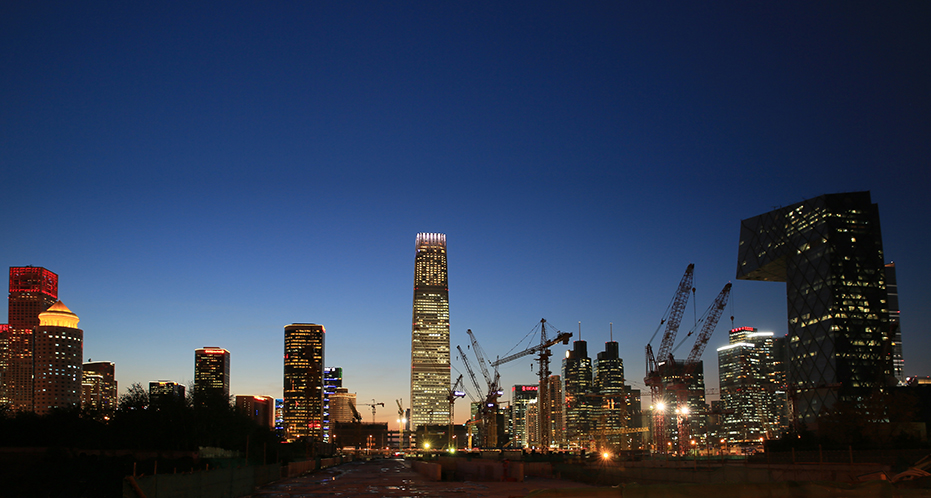Driving commercial and political engagement between Asia, the Middle East and Europe
Driving commercial and political engagement between Asia, the Middle East and Europe
Driving commercial and political engagement between Asia, the Middle East and Europe

Last week, the Prime Minister visited China, a country set to have the largest economy on Earth by 2030. Its rapid growth is expected to continue for another generation. In 2016, foreign direct investment (FDI) from China reached $180bn – a striking figure when compared with 2002, when it totalled less than $5bn.
The sophistication of the Chinese economy is also increasing. Last month, China announced plans to invest $2bn in a new artificial intelligence research park in Beijing – part of its ambition to become a world-leader in AI by 2025.
This “new” China is also leading what could be the largest and most strategically significant economic development programme in human history: the Belt and Road initiative.
This vast infrastructure programme will herald a new age of connectivity across the whole of Eurasia – from the Pacific to the Atlantic, from the Arctic to the Indian Ocean. It will drive commerce and create the potential for prosperity as never seen before.
The question facing policymakers in the west is how we should respond.
The American reaction has been adversarial. At Davos, President Trump said the US would “no longer turn a blind eye to unfair economic practices including massive intellectual property theft” – comments clearly aimed at China.
Indeed, the two countries have traded barbed comments in recent weeks, with the Chinese Foreign Ministry describing the US as an “unprecedented threat” to global trade, prompting Trump’s commerce secretary Wilbur Ross to hit out at China’s “protectionist behaviour.”
What we are seeing here is the manifestation of a reality that many in the west find uncomfortable – that the global order is in the midst of dramatic and long-term change.
The institutions created in the post-war era, the rules-based economic system forged in the image of the west, will be increasingly challenged as China and other Asian powers rise.
It is crucial that we recognise this fundamental shift so that we can position the UK for a new reality.
There have only been two periods when the world has known a sole superpower. Britain ruled the waves after the defeat of Napoleon in 1815, but only until 1871, when Germany emerged as unified state.
Why should we be surprised, then, that the supremacy enjoyed by the US following the fall of the Soviet empire in 1989 – the second period – should also come to an end?
We need to take a strategic, long-term approach to Beijing. China takes the long view. We should do the same.
If we do not, the risks are huge. The great “concert of powers” that dominated the global economy during the nineteenth century was concentrated in Europe.
The concert of powers that will dominate the twenty-first will all, with one exception, be in Eurasia. China, India and Russia will all be on the world stage. As of course will the US, which one should never short for long.
For us Europeans, the challenge is profound. Europe risks becoming what it was before the fifteenth century: just a corner of the Eurasian landmass. This is the fate that awaits Europe if it does not rediscover its energy, verve, and openness to the new global order.
And the UK must engage whole-heartedly with China.
There is room for optimism. The coalition government’s decision to join the Beijing-backed Asian Infrastructure Investment Bank (AIIB) in 2015 – a move opposed by US – saw the UK take its own stand on China.
Today, more than 80 countries are members of the AIIB, which is clearly going to take on a hugely significant role.
Trade between the UK and China has grown by 60 per cent since 2010, with the two countries enjoying a “Golden Era”, to borrow a characteristically Chinese diplomatic expression. And, in practical terms, there is a unique opportunity for the UK to ensure it takes the long view with China.
Last month, the City of London Corporation published research by Asia House which highlighted opportunities for the UK to partner with Asia. By far the most exciting opportunity for the City in this context is the Belt and Road.
Our financial services can be at the heart of the investment drive into Asian infrastructure; our exceptional legal and professional services can bring vital support to projects across the 65 countries involved; and our leading insurance sector can capitalise on the scale and ambition of the works ahead.
The UK can be an active partner to China on the Belt and Road, as well as a critical friend. Crucially, this would be a long-term partnership which both countries will have an interest in building.
The road ahead will sometimes be bumpy. It will certainly be long. But we should seize these opportunities and make it road worth travelling.
This article was originally published in CityAM as ‘The UK must not get left behind by China’s rise as a superpower.‘
